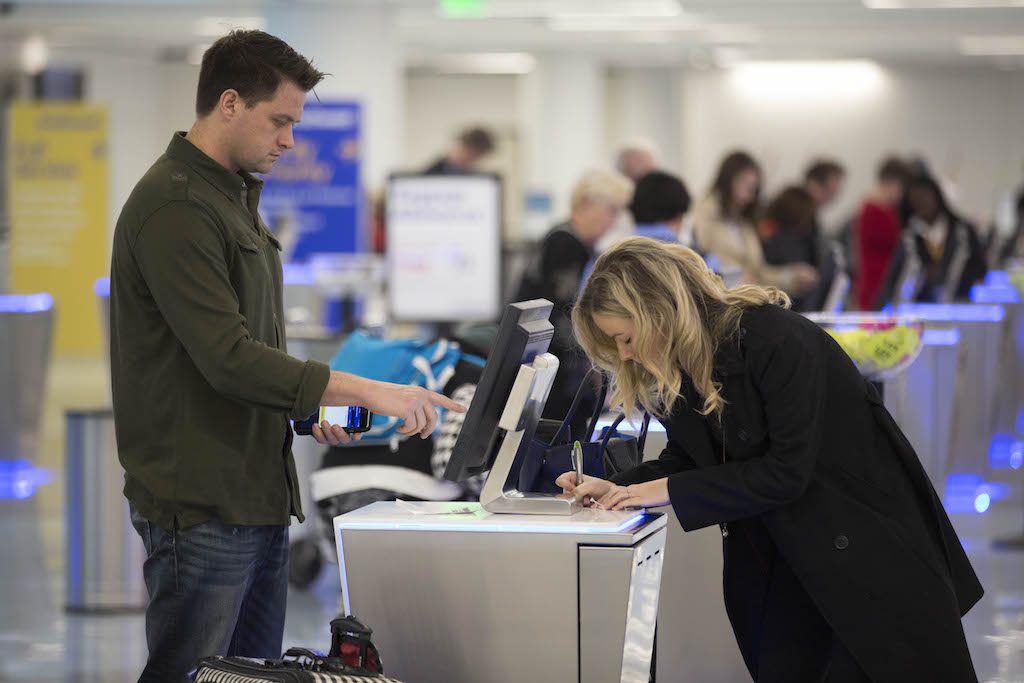Corporate Hotel and Air Business Remains Strong, But for How Long?

Skift Take
It's been a strong year for corporate travel in general, with both hotel chains and airlines reporting robust growth as businesses continue to send their employees across the world.
On their earnings calls in recent weeks for third quarter results, top executives across travel expressed optimism for the future of continued corporate travel growth. Still, signs are emerging that an economic slowdown is coming soon.
Hotel rates are high, putting pressure on the people who plan meetings and events. There are also lingering concerns around the effect that ongoing trade wars and negotiations around the world will have, along with uncertainty creeping into global stock markets. While the major players in corporate travel are getting along more nicely than before, the collaboration may not last if financial pressure increases.
Here's the latest from leaders across the industry on the state of corporate travel and their efforts to attract business travelers.
MARRIOTT CEO ARNE SORENSON ON CORPORATE RATES AND MEETING PLANNERS
"We have regular dialogue with our big corporate customers as it relates to both group and their transient travelers. We have regular sessions with group planners. Sometimes, those are folks in intermediary platforms. And often, those are folks internally at corporate or association customers. I think overwhelmingly, the response has been not just positive but enthusiastically positive. They appreciate the breadth of choice.
"They appreciate the execution that we're bringing to the portfolio of both group boxes in which we are, far and away, the biggest in the industry. And I think we're hearing from our association corporate group customers that they love the breadth of choice that we offer within our portfolio. And similarly, I think we hear from the business transient traveler that they like very much the breadth of choice that we're offering. And so when we see our share of the total travel book of some of our biggest corporate clients, we see that share generally growing, and the relationship is generally very robust...
"I think when you look at the way we've approached this, Starwood was higher with special corporate as a percentage of total business than Marriott was. And that was because they had more special corporate accounts. They went to smaller companies.
"We've reduced actually compared to what Starwood had some of those special corporate accounts. We'd obviously just as soon have as much of the business traveling public show up and pay, in effect, rack rate or a non-discounted rate as possible. And so we're not necessarily always looking to expand the special corporate book. Having said that, we've got great corporate customers who expect to have special arrangements. And for the right customer, we're certainly doing that."
Hyatt Hotels CEO Mark Hoplamazian on corporate demand for lodging
"Overall, we're feeling good about demand levels, really across transient and group. If we dig into that a little further, we look at our managed corporate account business in the third quarter which was very strong, sort of up in the mid to high single digits. And so we think that the health of the business traveler is good. We're looking at, based on some selected resort results over the course of the third quarter, we continue to see good demand into resorts.
"And as we said previously, we really think that this is a reflection of our customer base, which is a relatively higher-end traveler, the [average daily rate] levels in our resorts tend to run higher than the rest of the portfolio. And so we derive from that the continued health of that segment. So I think we feel good about demand. On the select service side, in particular, 2018 is a significant year of growth in supply, and it is a year in which supply is exceeding demand growth. We do see supply growth tapering in 2019. And I think that most of what we're seeing across the markets is primarily supply-driven at this point."
Travelport CEO Gordon Wilson on the Global Corporate Travel Landscape
"As you may have seen, one of the travel management companies, Carlson Wagonlit, has announced new GDS fields with each of our largest competitors. Travelport has, however, an existing contract with this customer, which runs through the end of 2020.
We do anticipate, nonetheless, the Carlson Wagonlit will progressively move a number of their corporate customers from us, which will have a negative impact in Q4 and into 2019. But what is interesting is it as a result of this plan change by Carlson Wagonlit, several of the corporations that happen today, had issued request proposals from other TMCs, and Travelport is, of course, supporting them.
"As a counter against this, there are series of wins and credits that we secured with other major travel management companies and some key regional players. This includes in markets, such as Scandinavia and Austria, where hitherto we had little corporate share at all... Looking geographically, in Asia, we are growing at two times of GDS market rate in air booking terms. Part of it is indeed India, but we've also shown significant share gains in Indonesia, Thailand and Malaysia. We're also seeing good gains across several European countries and Latin America."
Expedia Inc. Mark Okerstrom on the Habits of Business Travelers
"You continue to have a massive industry. You've got offline-to-online trends. And yes, we hear, 'Oh, is this industry fully penetrated?' The answer to that is not even close. I mean, if you look at where we are in the U.S., it's, call it, high 40s, 50 percent online penetration. It steps down from there the further you move away from, call it, Manhattan. And if you compare that with our corporate travel business, Egencia, where you're in an environment where everyone has a device, everyone has broadband access, online penetration there is in anywhere, depending on the client, high 80s or 90s. Because the reality is that as long as the experience is good, people don't really want to talk to a human. So we think that the offline- to-online opportunity is significant."
Delta Air Lines CEO Ed Bastian on trade wars' effect on corporate travel
"We really haven't seen any meaningful impact. We're watching it as everyone is. Our Pacific- based revenues in China, specifically, have done quite well in the quarter, especially given some of the added capacity that we had put into the market with our recent launch of Atlanta-Shanghai is doing well within our range of expectations. So we haven't seen it."
United Airlines President Scott Kirby on Increased Payments to Corporate Travel Partners
"We have increased our travel agency payments and corporate payments. I think if you went back and looked at the history, you'd see that was a responsive measure as opposed to a leading measure. And really, basically we have a philosophy, we're not going to lose share over something like that. Our goal is also not to win share through that, but to win share through being the airline that customers choose to fly. But we can't allow ourselves to lose share when our competitors are out trying to buy it."
American Airlines President Robert Isom on Corporate Business
"There hasn't been any loss in corporate share at American. We've had a really solid quarter in corporate revenue. As I mentioned, growing faster than top-line revenue growth. And as we take a look, it's broad strength across the corporate-led by professional services. We've got a healthy pipeline of new accounts, 450 new managed corporate accounts signed just this past quarter and a lot of enhancements coming. We haven't seen any weakness or fall off. And as a matter of fact, we're really pleased what we've seen, and an improving operation is only going to drive more benefit."




